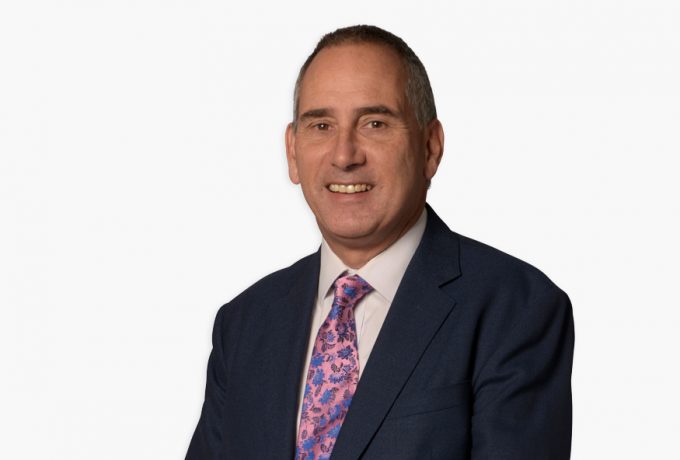
An opt-out feature introduced for temporary full expensing and backing business investment
The Treasury Laws Amendment (2020 Measures No. 6) Bill 2020 has been passed by Federal Parliament and contains amendments allowing businesses to opt-out of the temporary full expensing and the backing business investment incentive on an asset-by-asset basis.
This provides flexibility for entities who may prefer not to claim full or accelerated write-offs for all eligible assets. However, the Bill does not provide medium sized business entities with a choice to opt-out of the instant asset write-off (IAWO) for assets with a cost of less than $150,000. Accordingly, the IAWO will continue to apply on a mandatory basis. The Bill also contains a new balancing adjustment event where the use of a previously written-off depreciating asset changes.
What were the accelerated depreciation measures?
The backing business investment incentive provided a 50% up-front deduction for eligible depreciating assets first used or installed from 12 March 2020 to 30 June 2021 for entities with an aggregated turnover of up to $500 million. The temporary full expensing budget measure provided a 100% up-front deduction for eligible depreciating assets first used or installed between 7 October 2020 and 20 June 2022 for entities with an aggregated turnover of less than $5 billion. No cost limit applies to the asset under either measure.
What changes are being made?
During subsequent consultations, stakeholders suggested that the rules be optional as, in many cases, they would result in the business generating large tax losses as a result of making substantial investments. The new legislation will now include the “opt-out” feature, to allow businesses to choose not to use the full write off measures if they do not wish to. Other amendments were also included in the Bill that relate to the temporary full expensing measure (discussed below).
The choice to opt-out, can be made on an asset-by-asset basis, offering maximum flexibility to businesses.
Who do the changes apply to?
The changes apply to all entities satisfying the aggregated turnover thresholds who incur capital expenditure on assets covered by either of the measures.
However, the choice to opt-out has not been extended to assets that would qualify for the instant asset write-off under section 40-82 of the Income Tax Assessment Act 1997. Broadly, these are assets first acquired before 31 December 2020, first used or installed before 30 June 2021 and that cost $150,000 or less. The choice to opt-out has also not been extended to small business entities that have elected to use the simplified depreciation rules in Subdivision 328-D who will also not have a choice to opt-out. A small business entity can choose not to apply the rules in Subdivision 328-D for all depreciating assets first used or installed that income year. However, depending on the particular circumstances, choosing to do so could lock the entity out of being able to utilise the simplified small business deprecation rules for five years. Opting out of the simplified depreciation rules in a year does not affect assets already allocated to a general small business pool which continue to be depreciated for tax purposes under those rules, such that prior acquisitions would not be affected by that choice.
What are the changes trying to achieve?
The changes seek to provide greater flexibility to businesses that may otherwise generate excessive deductions from the purchase of depreciating assets. An entity may not want to generate substantial tax losses that may not be able to be utilised in later years (e.g. if the company or trust loss rules are not satisfied).
Alternatively, a company may have non-refundable tax offsets such as foreign income tax offsets, franking credits and R&D offsets that may be lost or otherwise subject to the carry forward loss rules if not utilised that year. Companies should also consider how much of a loss can be carried back under the loss carry back provisions introduced in the October budget when considering whether deductions from the accelerated depreciation measures will be excessive for the upcoming years.
Additionally, trusts may prefer to have some taxable net income allocated to beneficiaries and access their marginal tax rates for the upcoming income years rather than experience years of deducting prior year losses followed by large amounts of taxable income as the write-offs are partly clawed back (e.g. through disposal of the assets). Trusts may also have franking credits that they would like to distribute rather than lose if they were to be in an overall tax loss for the year.
When do the changes apply?
The ability to opt-out will apply to the 2020 & 2021 years for the backing business investment incentive and the 2021 & 2022 income years for the temporary full expensing measure.
What is an example of how the changes will operate?
By way of example, assume a taxpayer has purchased $1 million of depreciating assets (5 assets of $200,000 each) after 6 October 2020 but only wants to claim $600,000 as a deduction in the 2021 income year under the temporary full expensing measure. The amendments allow the taxpayer to choose not to claim full expensing for two of the assets with the $400,000 cost of those assets instead written off over their effective life under the prime cost or diminishing value methods according to the normal rules.
As part of this choice, the taxpayer should consider opting out for assets with shorter effective lives (depending on their circumstances and tax profile). For example, the taxpayer would most likely prefer to take the full deduction up-front for an asset with a 50-year life and instead opt-out for an asset with a 4-year effective life so that the deductions are not deferred too far into the future.
This will be an important year-end tax planning consideration given the flexibility it may provide.
Other changes contained in the Bill included balancing adjustment
The Bill also expands the temporary full expensing measure to large businesses with an aggregated turnover of more than $5 billion where their standalone turnover is less than $5 billion and they have invested more than $100 million in tangible depreciating assets during the 2017, 2018 and 2019 income years.
Further, the Bill introduces a new balancing adjustment for assets written-off under the temporary full expensing measure. Where it later becomes reasonable to conclude that the asset will stop being used or located in Australia or used for the principal purpose of carrying on a business, the taxpayer will have a deemed balancing adjustment event and be assessed on the market value of the asset at the time.
Taxpayers will therefore need to be careful when they change the use of previously written-off assets from a predominant business use to a predominant passive or private use (e.g. a business car written off under temporary full expensing is later used 60% for private purposes) as this may result in adverse tax consequences.
What are the next steps?
Contact your Pitcher Partners representative to review your existing arrangements and determine what action is required.










